Introduction
Autism spectrum disorder (ASD) has a significant impact on family dynamics, introducing unique challenges and altering interactions within the family. Navigating the emotional and behavioral issues that often accompany autism can be overwhelming for parents and caregivers. It is crucial to create inclusive environments that recognize the strengths and challenges of individuals with autism, ensuring that they have the support they need to thrive.
This article explores various strategies to empower Parent Advocates in navigating these challenges and fostering the well-being of their children. From understanding the impact of autism on family life to providing clear communication, implementing reasonable accommodations, and promoting social inclusion, each section offers guidance and resources to support Parent Advocates in their journey. By embracing these strategies, we can create a more equitable and nurturing environment for individuals with autism and strengthen the resilience of families as a whole.
Understanding the Impact of Autism on Family Dynamics
Autism spectrum disorder (ASD) encompasses a range of neurodevelopmental variations that can significantly influence family life. The presence of autism within a family can introduce unique challenges, alter family interactions, and necessitate adjustments to accommodate the individual needs of the child with ASD. As Dr. David (Dan) R. Offord, a notable child psychiatrist, once stated, "I do not mind if my children are in a race as long as the race is fair." This metaphor beautifully captures the essence of striving for equity in support for children with autism, ensuring they have equitable opportunities to participate in home, school, and social activities—a key aspect of fostering mental health and well-being.
The journey of families with autistic members often includes navigating co-occurring emotional and behavioral issues, which can place these children at risk of social exclusion. This underscores the importance of creating inclusive environments that recognize the strengths and challenges of children with autism. For instance, a recent study led by Sally Ozonoff of the UC Davis MIND Institute, published in Pediatrics, has reiterated the importance of understanding autism within families, highlighting the recurrence of autism in siblings and emphasizing the need for support systems that address the dynamic nature of family life.
Acknowledging the diverse experiences of autistic individuals and their families is crucial. As one autism advocate, Kieran Rose, who contributed to a project on autistic adults' experiences of violence in relationships, pointed out, the lack of information and support for autistic individuals in such situations reveals a gap in meeting their needs. This speaks to the broader issue of ensuring caregivers have the necessary resources to foster a nurturing environment that promotes the healthy development of all family members. According to recent statistics, the prevalence of autism is about 1 in 36 children, indicating a growing need for awareness and tailored support within families and communities.
In essence, to effectively support and create a nurturing environment for individuals with autism and their families, it is imperative to recognize and address their unique needs, reduce stressors, and ensure that resources are available for their holistic development. By doing so, we can help make the race fair for every child, including those with autism, and bolster the resilience and unity of the family as a whole.
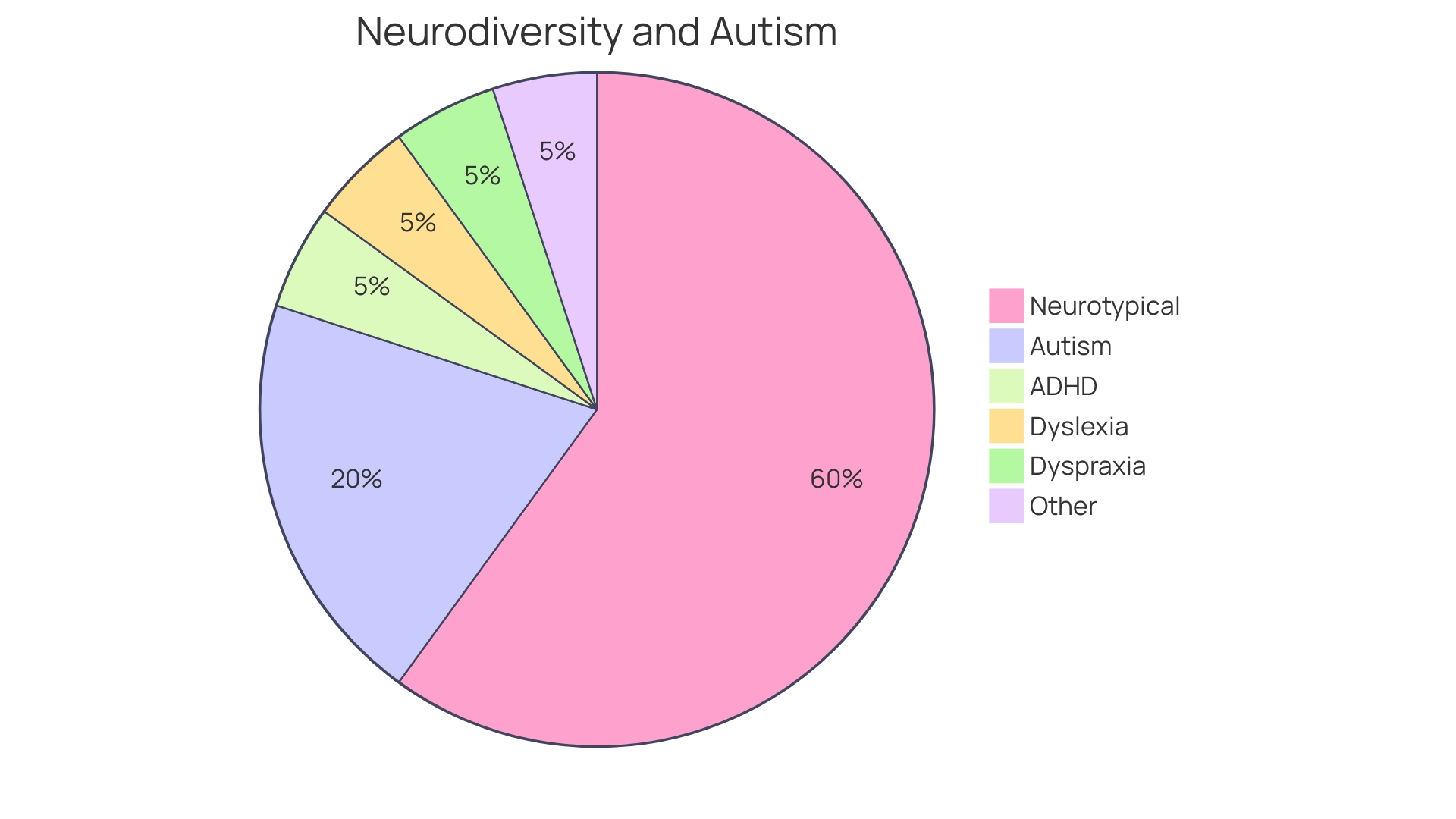
Creating an Autism-Inclusive Workplace Culture
Embedding a culture of inclusivity for autistic employees is not just about hiring; it's about nurturing their growth and enabling them to flourish in their careers. Individuals like Hanna, who discovered her affinity for programming at a young age, represent untapped potential due to the overwhelming nature of traditional workplace practices.
Organizations like auticon exemplify the benefits of embracing neurodiversity, with employees like Stefan, who was diagnosed early and benefited from an inclusive school environment, exemplifying the positive outcomes of support and acceptance.
Associate Professor Hala Annabi's insights from the Autism @ Work Playbook highlight the necessity of supporting the career development of neurodivergent individuals. Microsoft's neurodiversity hiring program, initiated in 2015, demonstrates a commitment to this approach, providing job coaches and mentors to facilitate integration and success in the workplace.
Neurodivergent employees, such as those at Autism Speaks, have proven their worth across various departments, bringing unique perspectives that enhance company culture and collaboration. However, traditional recruitment processes pose significant barriers, with expectations that can be daunting for individuals who process information differently.
To create a truly autism-inclusive workplace culture, organizations should seek neuroinclusion partners with professional experience, credibility, and a data-driven approach. Such partners will have a comprehensive understanding of neurodiversity and be able to tailor strategies to a company's specific needs.
The journey toward inclusivity requires a commitment to understanding the unique challenges and strengths of autistic employees. When supported, these individuals not only contribute to the diversity of thought but also help bridge the talent gap in today's competitive job market.
Statistics underscore the urgency of this endeavor – with only around 3 in 10 autistic individuals in employment, compared to 5 in 10 for all disabled people. This disparity not only affects the individuals but also the organizations that could benefit from their talents.
By fostering a psychologically safe workplace, companies can create an environment where neurodivergent employees feel comfortable expressing their opinions and contributing fully. As Matthew Kenslow, an autistic author and advocate, emphasizes, supporting the career growth of autistic employees provides them with a sense of worth and the opportunity to build strong relationships with colleagues.
The goal of an autism-inclusive workplace culture is to ensure that every employee, regardless of neurodiversity, is valued and given the opportunity to succeed.
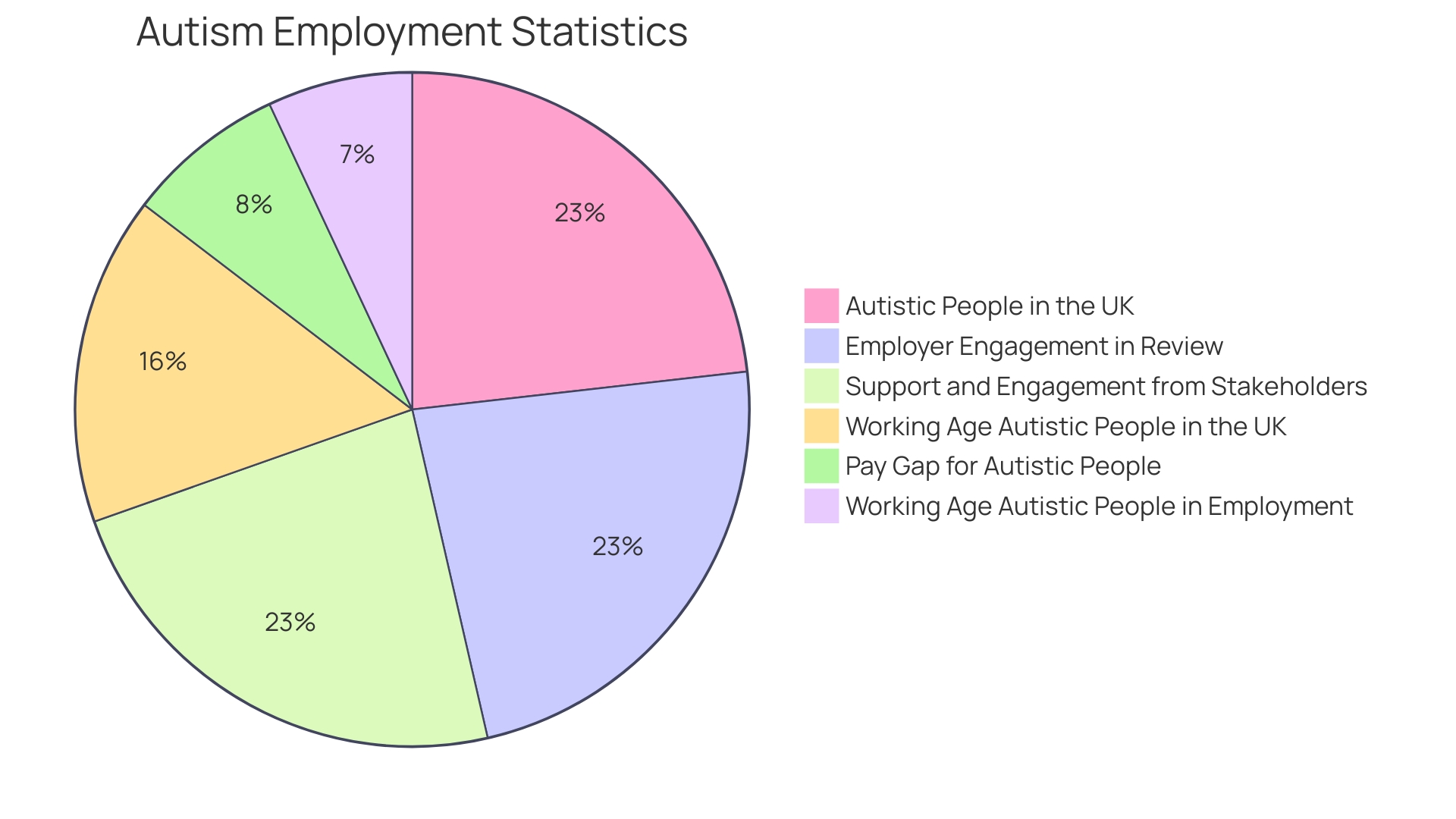
Providing Clear Communication and Instructions
Ensuring clarity and precision in communication is particularly crucial when supporting individuals with autism. Many autistic people experience challenges with language and social communication, which makes it essential to adapt communication methods to their needs. For instance, visual aids can provide concrete examples of abstract concepts, while written instructions can offer a clear structure that may be easier for an autistic person to follow than spoken words alone.
Optimizing communication for individuals with autism not only aids in reducing misunderstandings but also leverages their unique perspectives and strengths. Recent studies, including those by Dr. Katie Maras from the Center for Applied Autism Research, recommend personalizing communication strategies to the individual's preferences, emphasizing the importance of understanding each person's specific communication style.
In the workplace, effective communication with autistic employees can lead to improved job performance and satisfaction. It's a step towards acknowledging the diverse talents that autistic individuals bring to the table, as highlighted by recent research from York University. This research suggests that autistic individuals may possess traits that are beneficial in certain professional contexts, such as a reduced susceptibility to unethical behavior.
Elizabeth Bonker's organization, Communication 4 ALL, exemplifies a broader movement towards empowering nonspeaking individuals with autism by providing them with communication tools and educational resources. This approach aligns with the goal of creating inclusive environments that celebrate neurodiversity and recognize the potential of every individual.
While adjusting communication methods is vital, it is equally important to foster a culture of empathy and understanding. Emotional intelligence in communication involves recognizing and responding to the emotional states of others, which can significantly enhance interactions with autistic colleagues.
By embracing these strategies, organizations can contribute to mitigating the high unemployment and underemployment rates among autistic individuals, which, according to Autistica, is a significant issue. Through awareness-raising initiatives and tailored support, employers can unlock the potential of autistic employees, benefiting both the individuals and the organizations they work for.
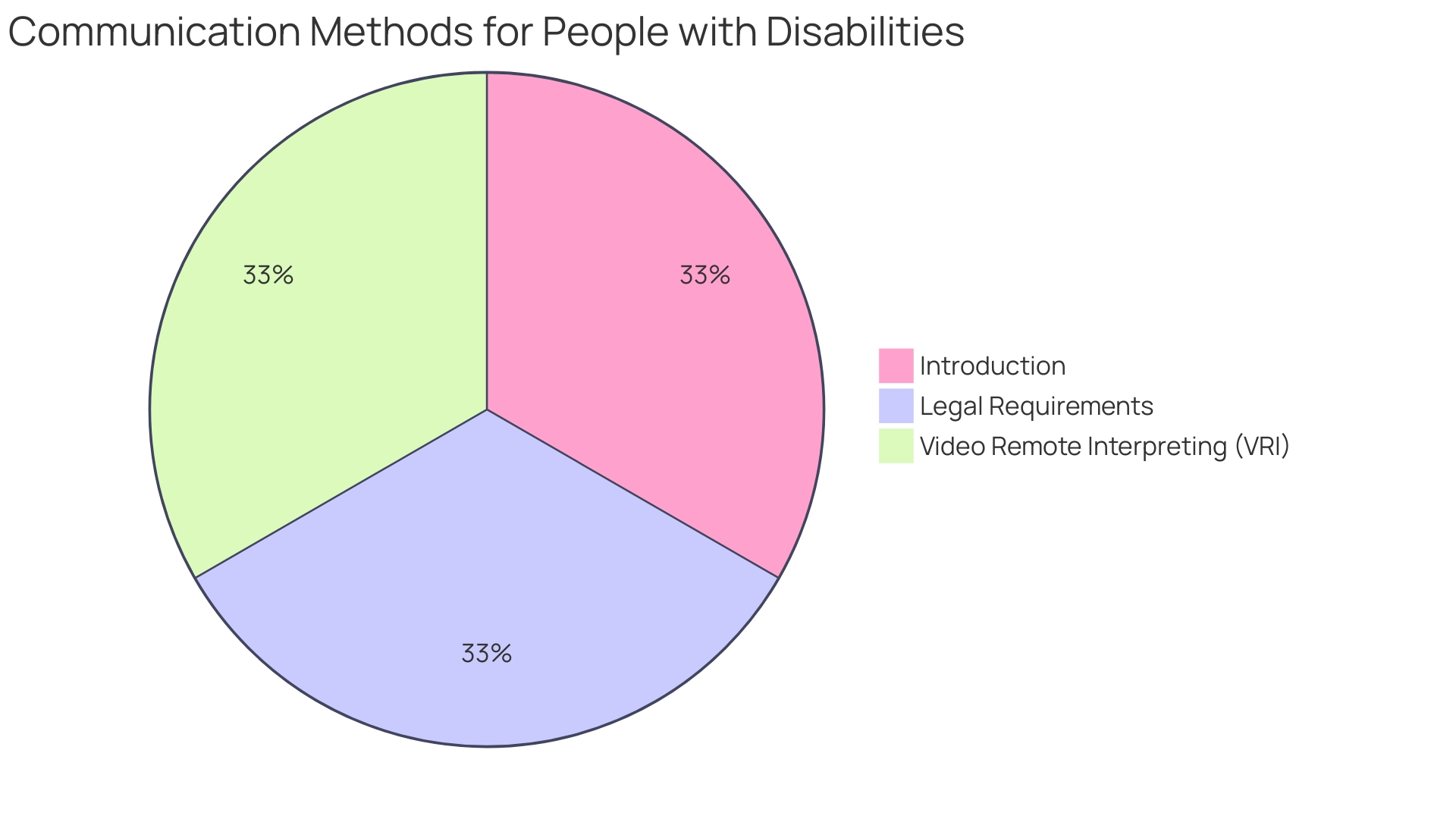
Implementing Reasonable Accommodations
Fostering an inclusive work environment where employees with autism can excel requires thoughtful accommodations tailored to their unique needs. Adjustments to work schedules, creation of sensory-friendly workspaces, and the provision of assistive technologies are just a few examples of how employers can support these individuals. Recent statistics reveal that approximately 27% of U.S. adults live with a disability, and despite improvements in employment opportunities, the unemployment rate for those with disabilities remains twice as high as for those without. Furthermore, many disabilities, including autism, may not be immediately apparent, highlighting the importance of a supportive workplace culture.
Case studies, such as a building manager with PTSD who was permitted to bring an emotional support animal to work on a trial basis, illustrate the practical implementation of accommodations. Another example is a construction worker with a leg impairment who could not climb ladders, highlighting the need for employers to consider the physical aspects of job duties. Employers must comply with the Americans with Disabilities Act (ADA), which mandates reasonable accommodations for qualified workers with disabilities, ensuring they can participate in the application process, perform essential job functions, and enjoy the same employment benefits as their peers.
The Accommodation and Compliance Webcast Series and initiatives from organizations such as Hopper Health provide valuable training and insights into creating a disability-inclusive workplace. Recent surveys underscore the challenges neurodivergent individuals face, with only 41% of neurodivergent adults reporting that they receive workplace accommodations. This data drives home the urgency for HR practitioners to develop better support mechanisms. By focusing on the entire work experience—from physical space to social interactions—employers can make meaningful progress toward accessibility and inclusion for all employees.
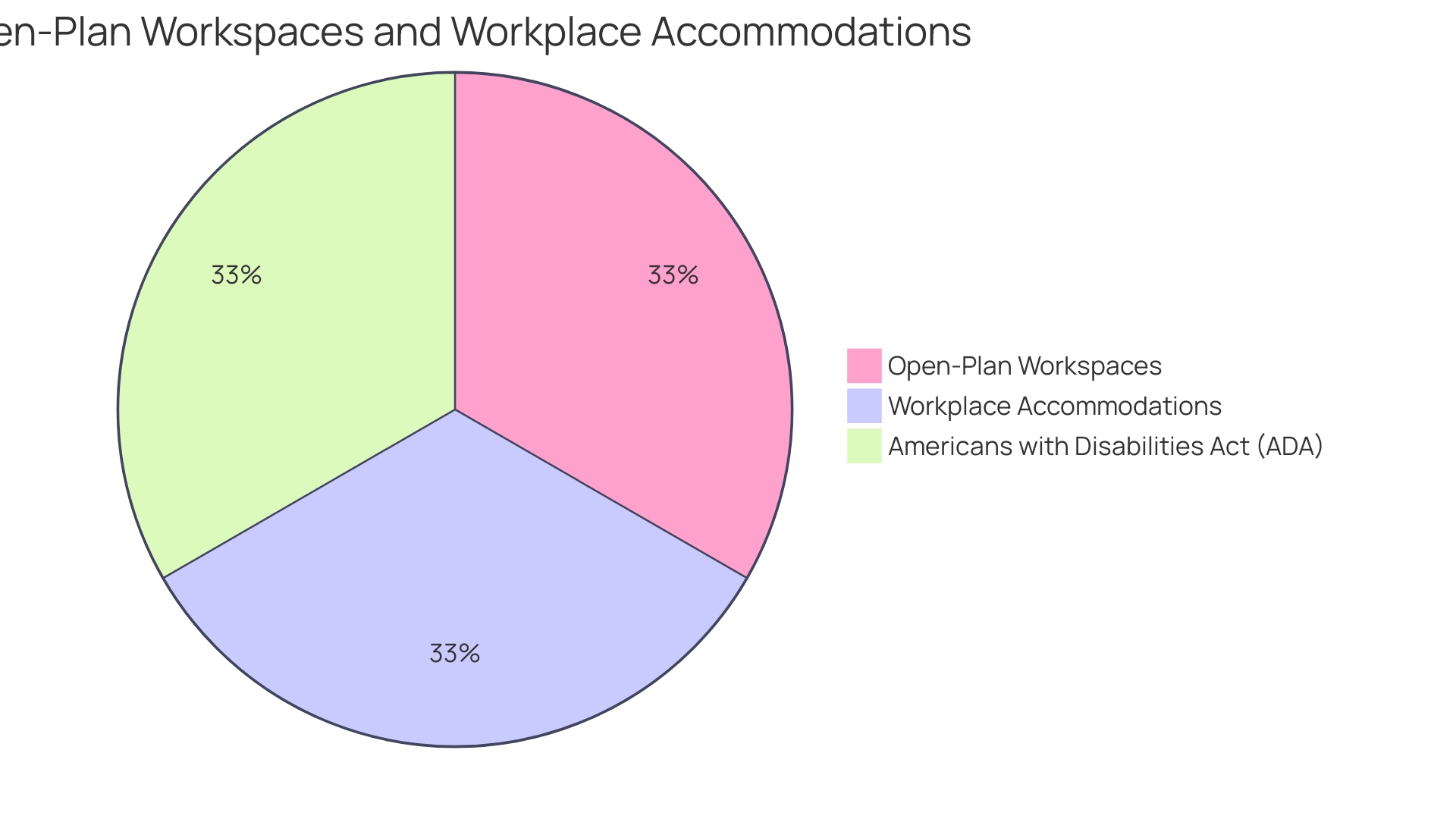
Educating and Training Colleagues
Creating an inclusive workplace that recognizes the contributions of neurodiverse individuals is becoming increasingly important. With around 1 in 70 people being autistic, it's essential for organizations to understand how to support and develop the careers of neurodivergent employees. To build such an environment, awareness and training are key. Associate Professor Hala Annabi's work, including the 'Autism @ Work Playbook', emphasizes the importance of not just hiring neurodivergent individuals but supporting their continuous professional development.
The playbook highlights the need for companies to see beyond the initial hiring and to help neurodivergent employees envision their career pathways and advocate for their own advancement. This is not only equitable but also fills the talent gap with skilled individuals who may otherwise be overlooked. For example, a study revealed an Asian-American autistic woman successfully leading a product management team by scheduling and planning social interactions to manage her team effectively without disclosing her autism.
According to recent statistics, the majority of autistic individuals want to work, yet only 3 in 10 are employed, compared with 8 in 10 non-disabled people. Furthermore, autistic individuals face a significant pay gap, earning a third less on average than non-disabled counterparts.
To overcome these challenges, a neuroinclusion partner can be invaluable. This partner should possess attributes such as professional credibility, lived experience, a holistic approach, and the ability to tailor strategies to a company's specific needs. By engaging a knowledgeable partner, companies can implement comprehensive plans that lead to impactful and strategic outcomes for neurodiverse employees.
Autistica's research and various initiatives have shown that raising awareness and reducing stigma are essential steps towards harnessing the productivity of autistic employees. A recent review sought to improve the employment rate of autistic individuals by engaging with employers, charities, and autistic individuals themselves to identify barriers and develop strategies to overcome them.
Through committed efforts to educate and train colleagues about autism, organizations can foster a supportive environment that not only dispels misconceptions but also leverages the unique strengths of neurodiverse talent.
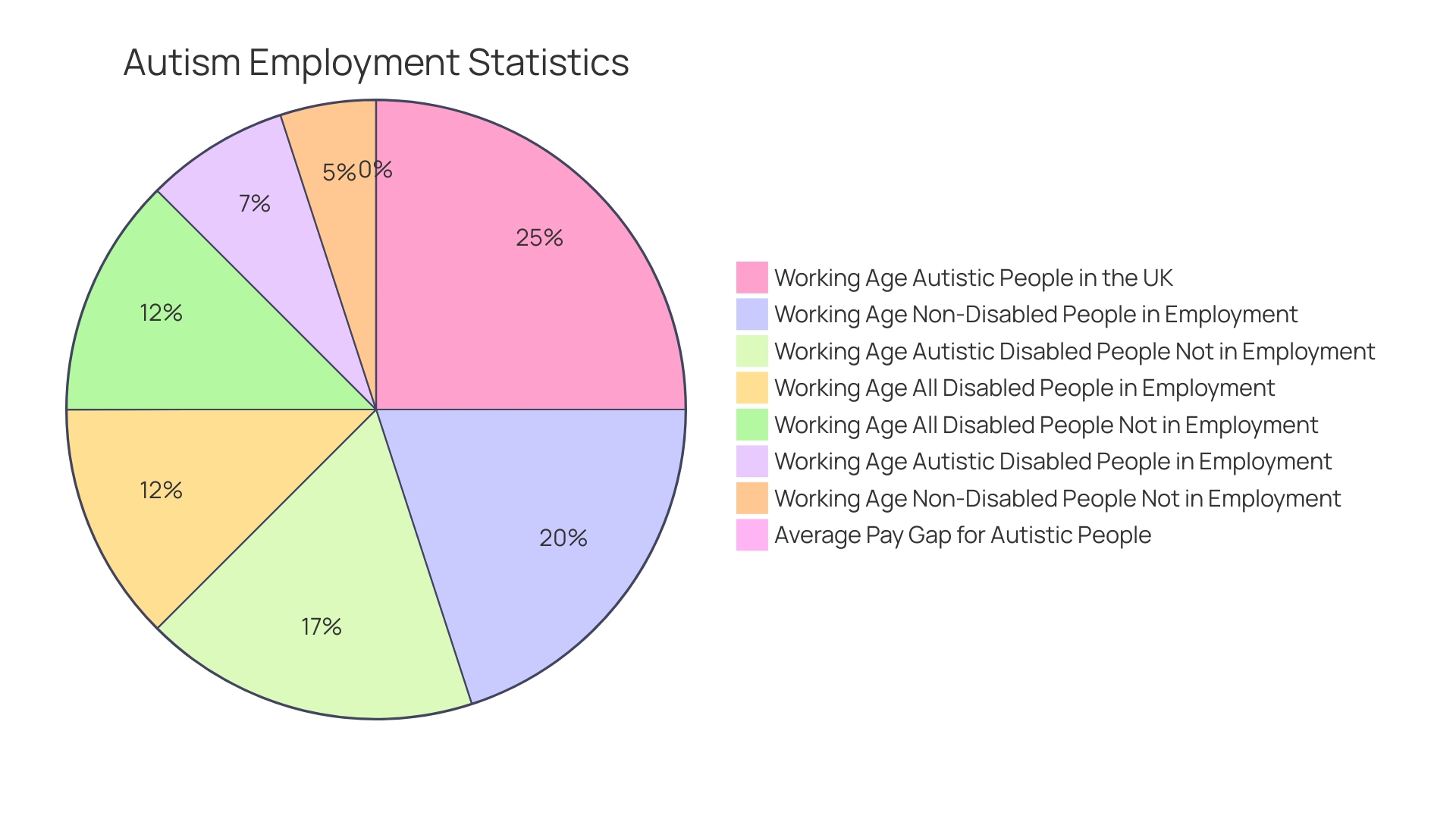
Promoting Social Inclusion and Support
Fostering an environment of social inclusion and support in the workplace is critical for autistic employees to feel a sense of value and belonging. With around 1 in 70 people being autistic, representing approximately 1 million individuals in the UK alone, it is evident that workplaces need to be proactive in creating inclusive strategies. Despite a strong desire to work, evidenced by National Autistic Society's research, only about 30% of working-age autistic adults are employed, which is significantly lower than the rate for non-disabled individuals. Furthermore, autistic employees encounter a substantial pay gap, earning on average a third less than their non-disabled peers.
Initiatives that raise awareness, reduce stigma, and highlight the unique contributions of autistic employees are essential. These initiatives can include tailored recruitment processes, specialized onboarding programs, and ongoing support structures that acknowledge the diverse needs of neurodiverse individuals. By implementing such measures, employers can not only enhance the well-being of autistic employees but also tap into a reservoir of untapped potential that can drive organizational success.
In light of a comprehensive review initiated on World Autism Awareness Day and involving a vast array of stakeholders, including employers and autism charities, recommendations have been put forth to improve employment rates for autistic individuals over the next five years. This collaborative effort underscores the importance of employer engagement in developing effective pathways for autistic individuals to enter and thrive in the workforce. By embracing these recommendations, employers can effectively prepare autistic people for a meaningful career, ensuring they are supported not just at the start of their employment but throughout their professional journey.
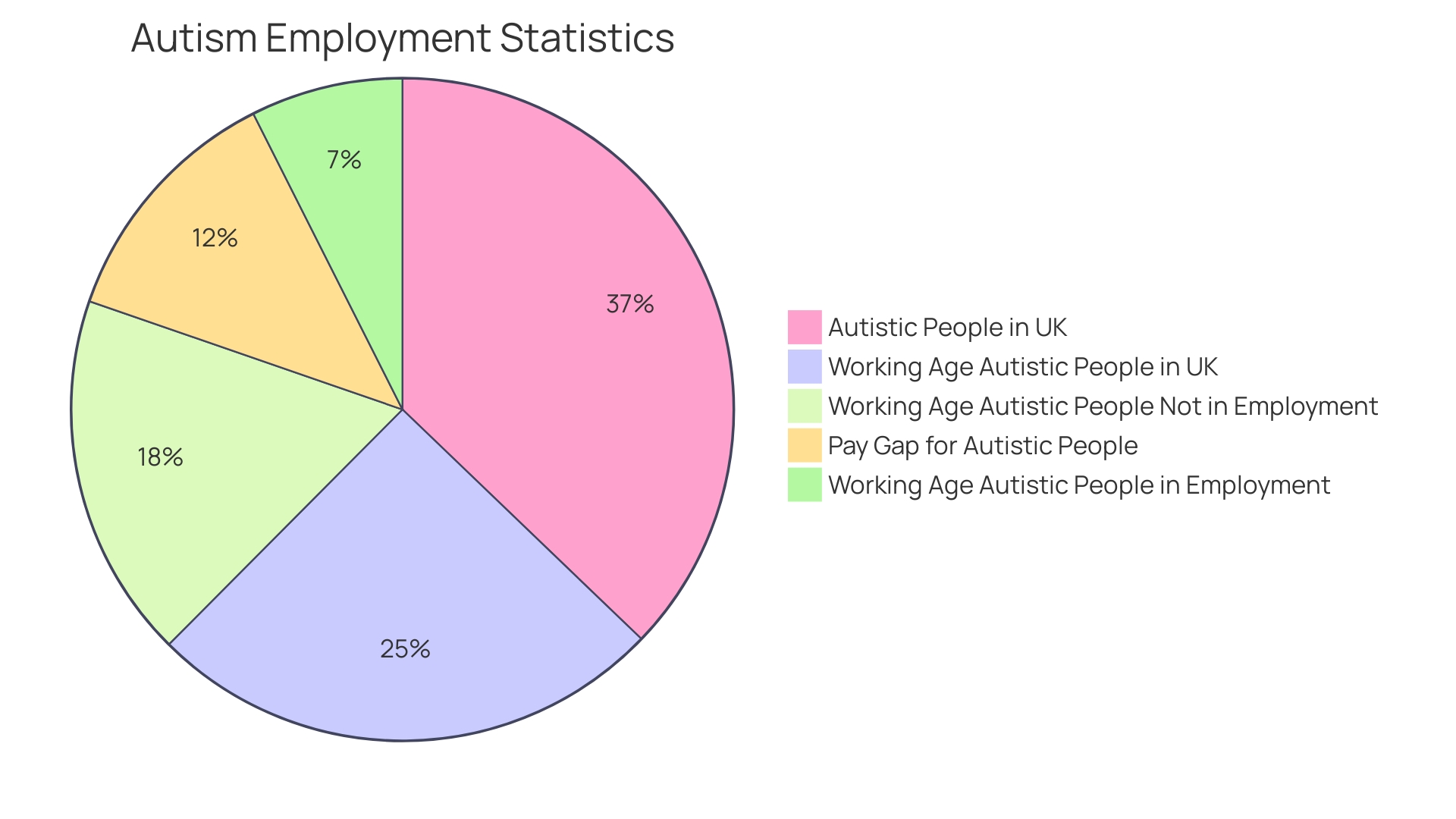
Providing Mentorship and Guidance
Supporting the professional growth of employees with autism is crucial for their success and the company's inclusivity goals. Mentorship is a core component of this support system, offering a means of guidance and career development. Associate Professor Hala Annabi emphasizes the importance of not just hiring neurodivergent individuals but also nurturing their career progression. Companies recognize the value in filling talent gaps and promoting equity in the workplace, as evidenced by Microsoft's autism hiring program and the Autism @ Work Playbook, which Annabi played a pivotal role in developing. These initiatives highlight the need for mentors who can help neurodivergent employees visualize their career pathways and advocate for themselves.
Statistics reveal that autistic adults are often underemployed, with up to 90% not fully engaged in the workforce, despite their loyalty and low absenteeism rates. Businesses that actively hire neurodivergent talent, as shown in a study by Accenture, the American Association of People with Disabilities, and Disability: IN, experience superior financial performance. It's not just about the opportunities provided to autistic individuals, but also the unique skills and perspectives they bring to their roles, which can lead to a more inclusive and productive work environment.
A successful mentorship program for employees with autism should encompass five key attributes: professional expertise in neuro inclusion, lived experiences, a holistic strategy, relevance to the company's specific needs, and a data-driven approach. Engaging a neuro inclusion partner with these attributes ensures that neurodivergent employees have access to meaningful mentorship, which in turn contributes to their individual success and the company's growth. With the right support, autistic individuals can overcome employment barriers, as seen in the positive outcomes of inclusive hiring practices and mentorship programs.
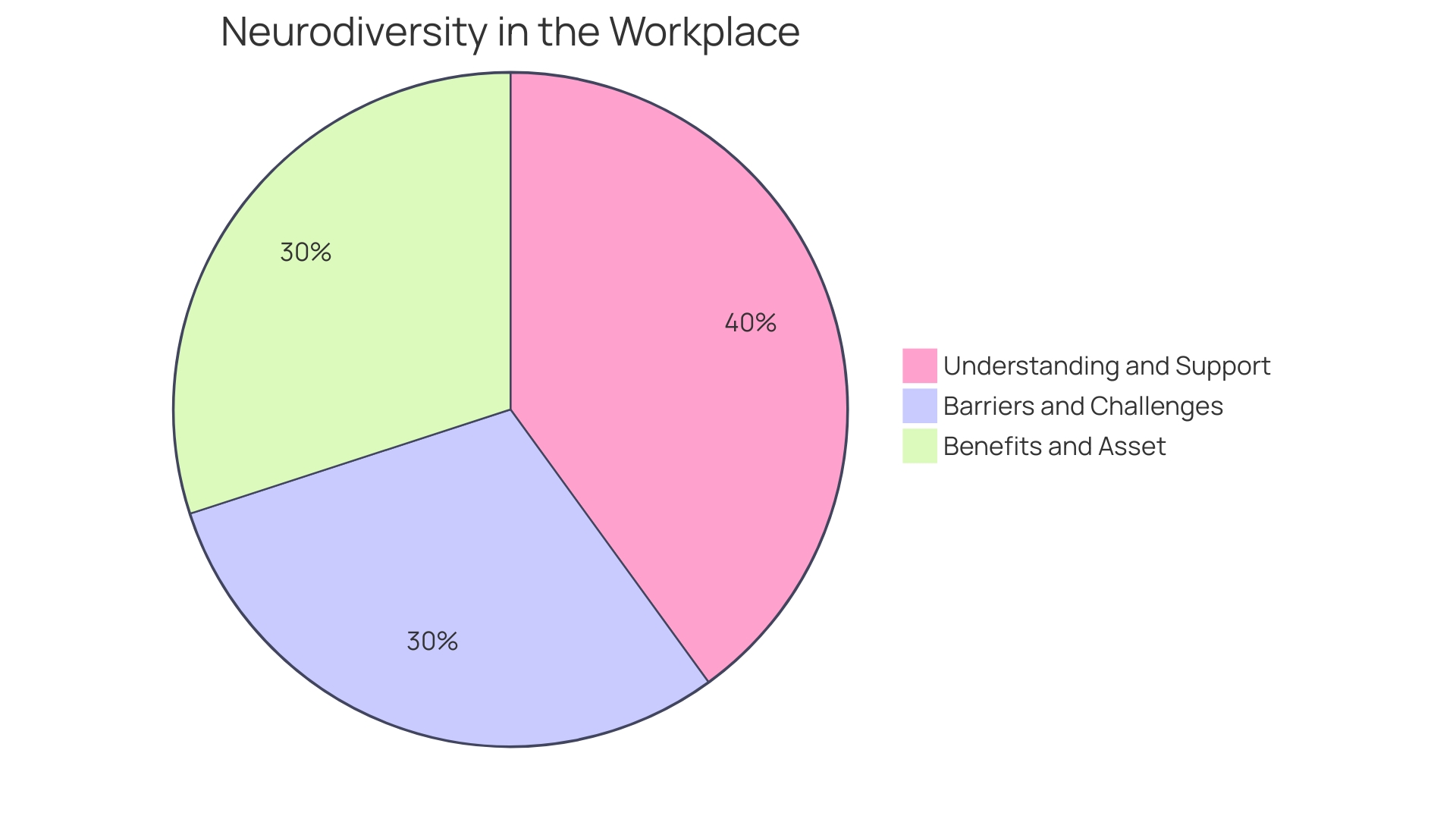
Sensitivity to Sensory Needs
Creating a sensory-friendly workplace is essential for accommodating the needs of individuals with autism, who may have different sensory experiences than their neurotypical peers. To foster a productive and inclusive work environment, it's critical to consider various design elements that can impact sensory comfort. Acoustics play a vital role, as many individuals on the autism spectrum are sensitive to noise. Strategies such as soundproofing and creating quiet zones can mitigate noise levels, promoting concentration and reducing stress.
Spatial sequencing is another important consideration, ensuring that workspaces are designed to be easily navigable and predictable, which can be especially beneficial for autistic employees. This involves thoughtful arrangement of rooms and furniture to create a coherent flow.
The Autism ASPECTSS Design Index, a pioneering set of design guidelines, emphasizes the significance of environmental factors like lighting and workspace design. Tailored lighting schemes that reduce glare and harshness can create a more soothing atmosphere, while workspace design should prioritize comfort and personal space to cater to tactile sensitivities.
Employers are recognizing the impact of sensory design in enhancing the workplace experience. By incorporating elements such as curated scents, choreographed lighting, and sound masking, workplaces can become more attractive and supportive for all employees, including those with autism. In line with the emergent focus on neurodiversity, modern workspaces are moving beyond mere aesthetics to offer a variety of sensory experiences that cater to the diverse needs of their workforce.
Statistics reveal that autistic individuals face significant employment challenges, with only about 30% of working-age autistic people in employment, compared to 50% of all disabled people and 80% of non-disabled people. Addressing sensory needs in the workplace is not only a matter of inclusivity but also a means to harness the potential of a largely untapped talent pool. As businesses strive to improve the autism employment rate, incorporating sensory-friendly design is a step towards creating a more equitable work environment for everyone.
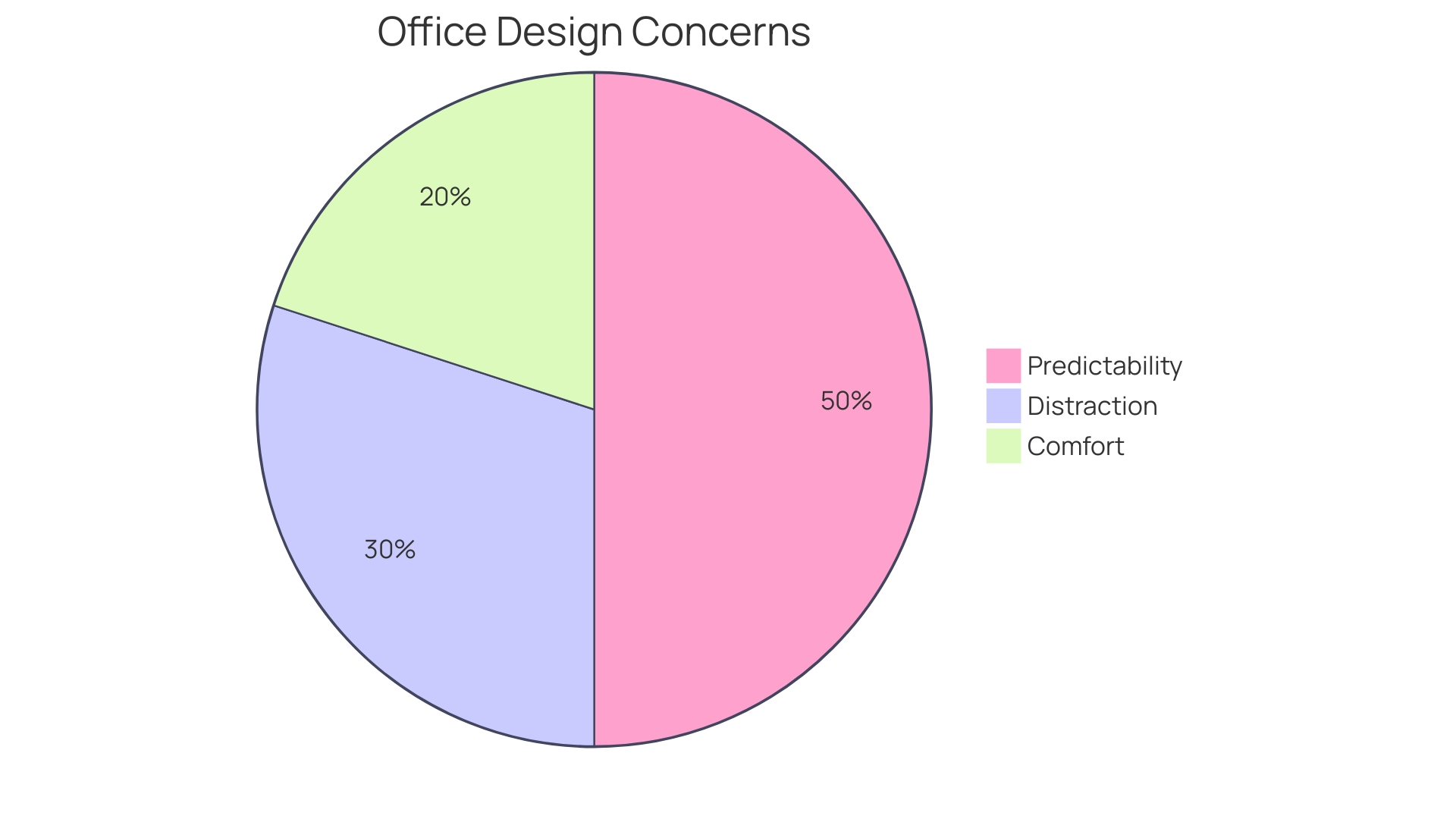
Ensuring Equal Opportunities and Career Growth
The integration of neurodivergent individuals into the workforce is not just about creating entry-level positions but also about fostering their career development and upward mobility. Associate Professor Hala Annabi's work on the "Autism @ Work Playbook" underscores the importance of guiding neurodivergent employees along their career paths, as they may find it more challenging to advocate for themselves for promotions. Such support is crucial, especially considering the staggering statistic that up to 90% of autistic adults in the United States are unemployed or underemployed.
Autistic employees are known for their loyalty and lower absenteeism, which, coupled with the fact that most accommodations for them cost nothing, makes them valuable assets to any team. They also contribute unique perspectives that can enhance a company's culture, as seen with the diverse roles played by autistic employees at Autism Speaks, across departments from marketing to science.
Furthermore, embracing neurodiversity in the workplace means acknowledging and appreciating the intersectionality of identity. Individuals should not be defined by a single characteristic, and recognizing the multifaceted nature of each person's identity, including disability status, can address biases and discrimination and promote a more inclusive work environment.
By starting conversations about neurodiversity and its benefits, organizations can create psychologically safe spaces for neurodivergent employees to request the support they need, leading to greater engagement and productivity. This is especially pertinent when we consider the innovative measures companies like Emirates and Dubai International Airport are taking to accommodate neurodivergent individuals, not just within the workplace but also in broader experiences such as travel.
As the business world looks to build and nurture a diverse talent pipeline, small businesses, which form the backbone of many communities, stand to gain significantly from the inclusion of neurodivergent individuals. Not only does this inclusion foster diverse thinking and reduce turnover, but it also provides insights into a growing customer base. Finally, the push for improving the autism employment rate is gaining momentum, as seen in the review launched on World Autism Awareness Day, which aims to identify and overcome barriers to employment for autistic individuals.
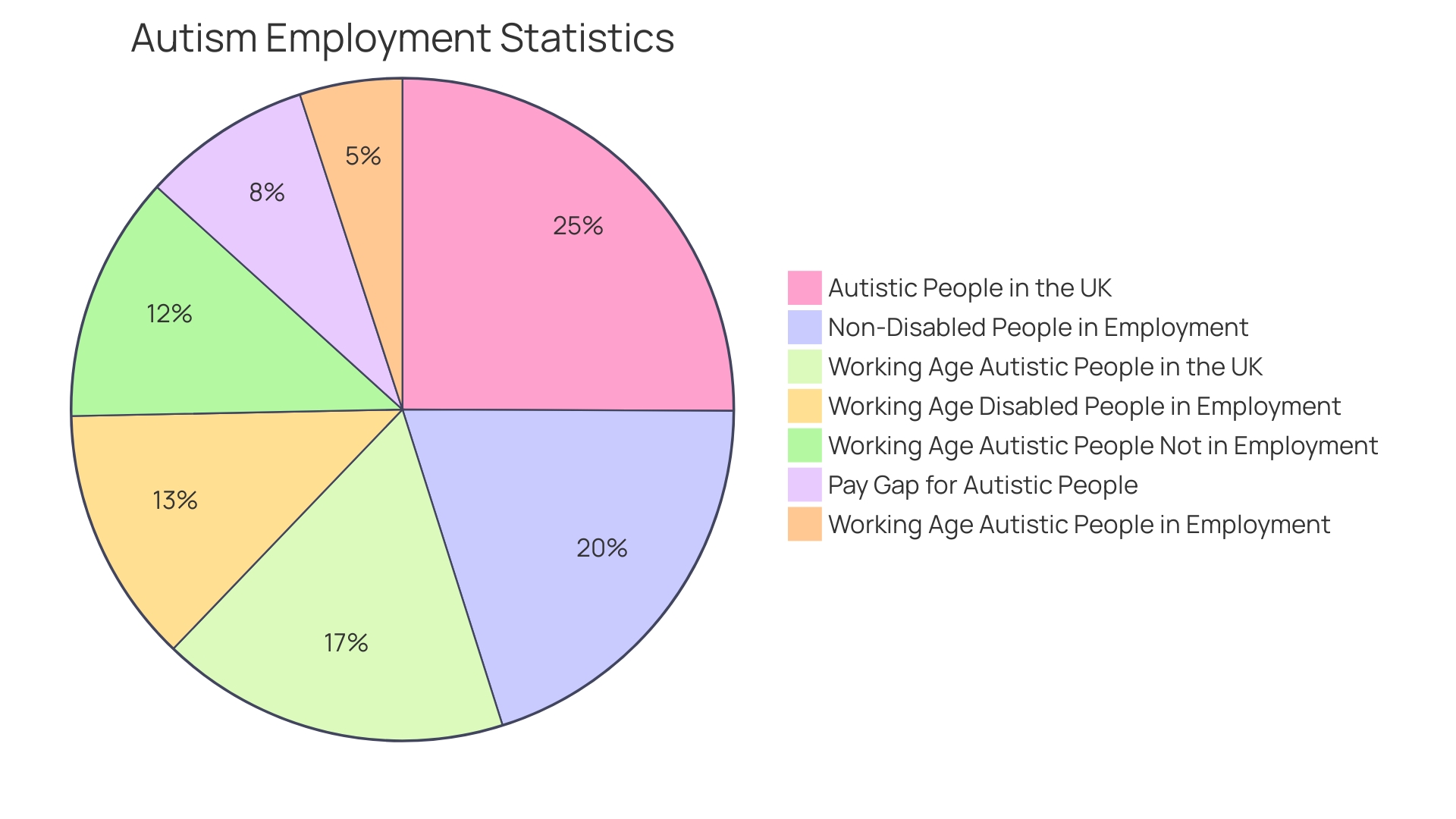
Celebrating Diversity and Accomplishments
Creating a welcoming and inclusive workplace culture that values diversity isn't just a moral imperative; it has tangible benefits for innovation, creativity, and employee satisfaction. This is especially true when acknowledging the unique talents and perspectives that employees with autism bring to the table. Celebrating the achievements and contributions of neurodiverse individuals not only fosters a sense of belonging but also drives organizational success.
Consider John, a software engineer on the autism spectrum, whose exceptional pattern recognition skills and dedication have resulted in significant innovations for his tech company. His story underscores the untapped potential that inclusive hiring practices can unlock. In fact, companies that actively hire neurodiverse individuals see higher revenues, net income, and profit margins, according to a study by Accenture and partners. This is a testament to the unique skill sets and dedication that neurodiverse employees can contribute to their workplaces.
The benefits extend beyond individual companies. Associate Professor Hala Annabi emphasizes that supporting the career growth of neurodiverse employees is crucial for their success and the organization's growth. Initiatives like Microsoft's neurodiversity hiring program demonstrate how tailored recruitment processes can help neurodiverse candidates excel in their roles, contributing to the company's overall performance and inclusive culture.
To truly harness the potential of neurodiversity, it's vital to create environments where employees feel comfortable seeking the support they need to thrive. This means discarding outdated notions of engagement, such as the emphasis on eye contact, and embracing a broader understanding of competency and respect. By doing so, we not only make our workplaces more inclusive but also more productive and successful.
With nearly 1 in 70 people being autistic, it's clear that a significant portion of the talent pool is neurodiverse. Yet, only about 3 in 10 of these individuals are employed. By addressing the barriers to employment and fostering an inclusive culture, we can capitalize on this untapped resource, potentially adding up to $25 billion to the U.S. GDP, as highlighted by a national analysis.
Ultimately, recognizing and celebrating the diversity within our teams is not just about doing the right thing; it's about doing the smart thing for our businesses and the economy at large.
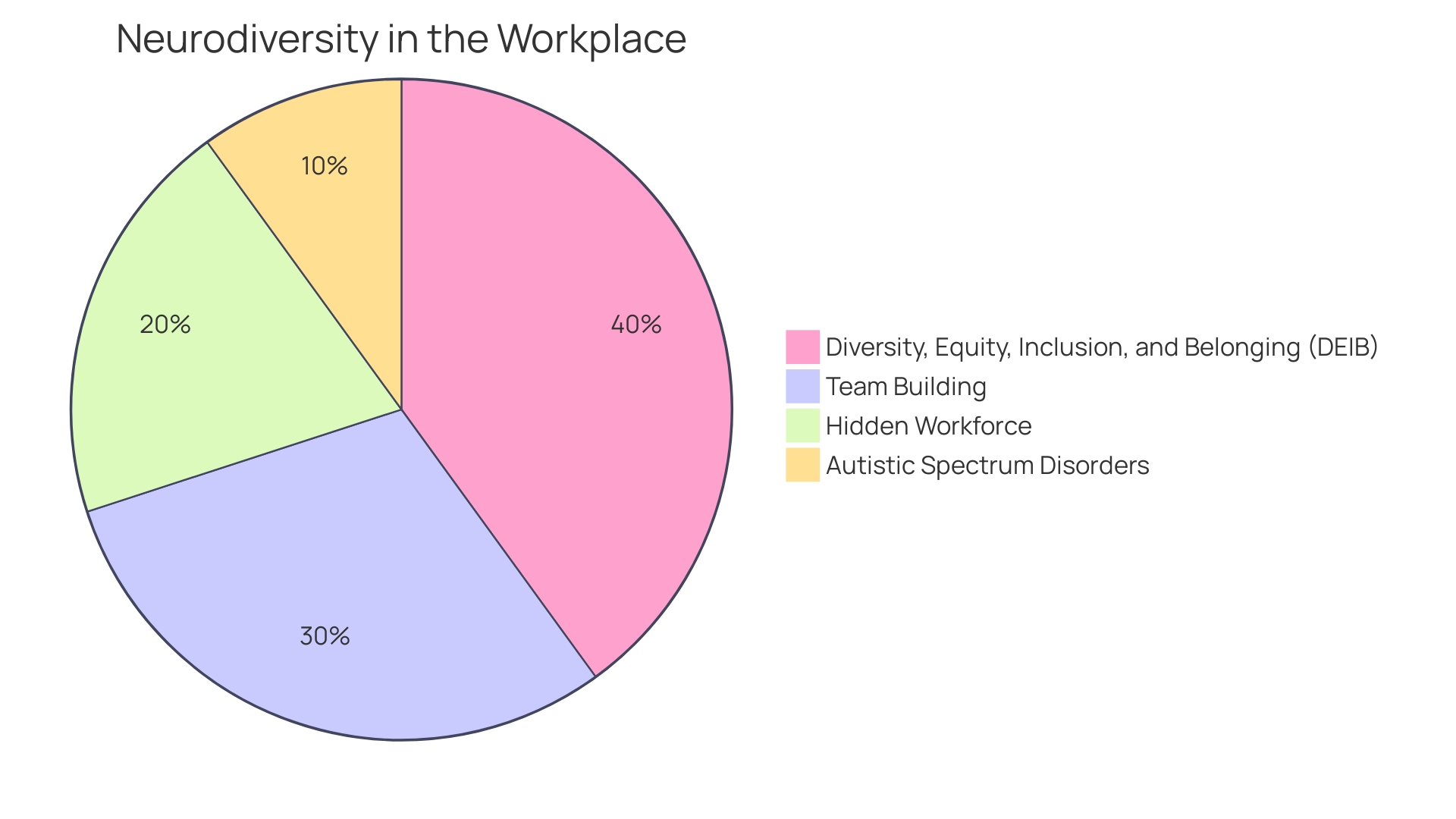
Building a Supportive Network
Parents of children with autism often find themselves on an uncharted journey, where every step towards building a supportive network becomes pivotal. It's about creating a space where knowledge, experiences, and emotions can be shared, offering a blanket of understanding and emotional support. With the wisdom of Dr. David (Dan) R. Offord, who believed in fair races for all children, we see the importance of a peaceful, supportive environment that promotes mental health and ensures that all children, including those with disabilities, have equal opportunities to thrive.
In the spirit of fostering this inclusive environment, it is essential to connect with support groups that resonate with the family's needs. Community resources play a significant role in easing the daily challenges by providing practical support and enabling parents to exchange stories that could light the path ahead. By linking arms with professionals who specialize in autism, parents can stay abreast of the latest findings, treatments, and therapeutic approaches, ensuring they are well-equipped to make informed decisions about their child's development and well-being.
Furthermore, the digital era brings about unique challenges, with the influence of social media and online interactions affecting the mental health of children and teens. Initiatives like The Archewell Foundation's support network exemplify the power of community in healing and advocating for a safer online space. By sharing their stories, parents contribute to a global movement that not only aids their own healing but also paves the way for preventing harm to others.
Amidst this supportive framework, caregivers must also consider the medications and treatments prescribed to their children. It's crucial to understand the potential benefits and risks, always with a vigilant eye for how these affect their child's behavior. The internet, while a treasure trove of information, requires a discerning approach to filter out misleading treatments that may do more harm than good.
Ultimately, the journey for parents of children with autism is continuous learning. With each resource tapped and each connection made, they build a network that is not just supportive but also a beacon of hope and change for families navigating similar paths.
Self-Care for Parents and Advocates
Self-care is a vital component for those advocating for children with autism. It's not just about stress management; it's about maintaining one's overall well-being to be an effective support system. For instance, Dr. David (Dan) R. Offord emphasized the importance of providing a fair and supportive environment for children, particularly those with disabilities, which is only possible when caregivers are well-resourced and well-supported themselves.
Striking a balance between attending to a child's needs and setting boundaries is crucial to both the child and caregiver's mental health. It's akin to the concept of house rules or non-negotiables that establish a framework within which young people can feel secure and supported.
Moreover, staying informed about the latest research on autism therapies and medications is integral to caregiving. By understanding the benefits and risks, caregivers can make educated decisions about their child's treatment plan. This continuous learning process is a form of self-care, ensuring that caregivers remain equipped to provide the best possible support.
The noise and constant demand for attention are familiar to any parent, but they can be particularly intense for those with autistic children. As one mother shared, the incessant 'mum, mum, mummy!' can be overwhelming, highlighting the need for caregivers to find moments of respite to recharge.
The pandemic has further underscored the critical role of caregivers, with over 265,000 children losing a parent or caregiver to COVID-19. This traumatic event has had a disproportionate impact on Black, Latino, and Native American communities, amplifying the need for accessible support systems for those left behind.
In the face of such challenges, remembering to prioritize self-care is not an indulgence but a necessity. It's about being physically, emotionally, and financially well, so that one can continue to be the pillar of strength that children with autism need to thrive in their daily lives.
Conclusion
In conclusion, navigating the challenges of autism spectrum disorder (ASD) within the family requires understanding and empowerment. Creating inclusive environments that recognize the impact of autism on family dynamics is crucial. Clear communication and instructions tailored to the needs of individuals with autism play a significant role in supporting Parent Advocates.
In the workplace, fostering an autism-inclusive culture through mentorship, sensitivity to sensory needs, and reasonable accommodations is vital for the success of neurodivergent employees. Providing equal opportunities and celebrating diversity and accomplishments drive innovation and satisfaction.
Building a supportive network for parents of children with autism offers knowledge-sharing and emotional support. Practicing self-care is essential for caregivers to maintain their well-being and effectively support their children.
By embracing these strategies and resources, Parent Advocates can confidently navigate the challenges of autism and empower their children to thrive. Creating inclusive environments, providing support, and celebrating the unique strengths of individuals with autism contribute to a more nurturing and equitable world for all.




